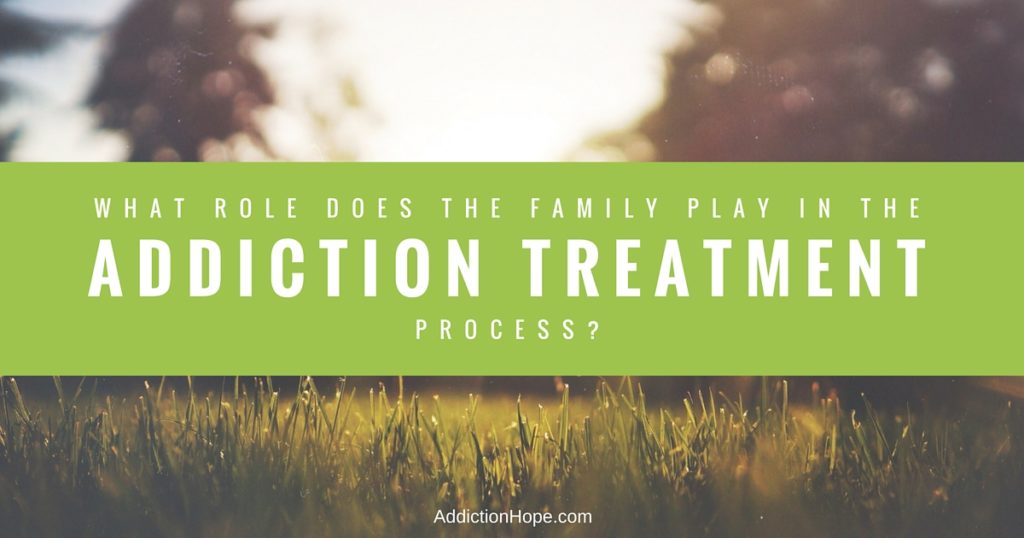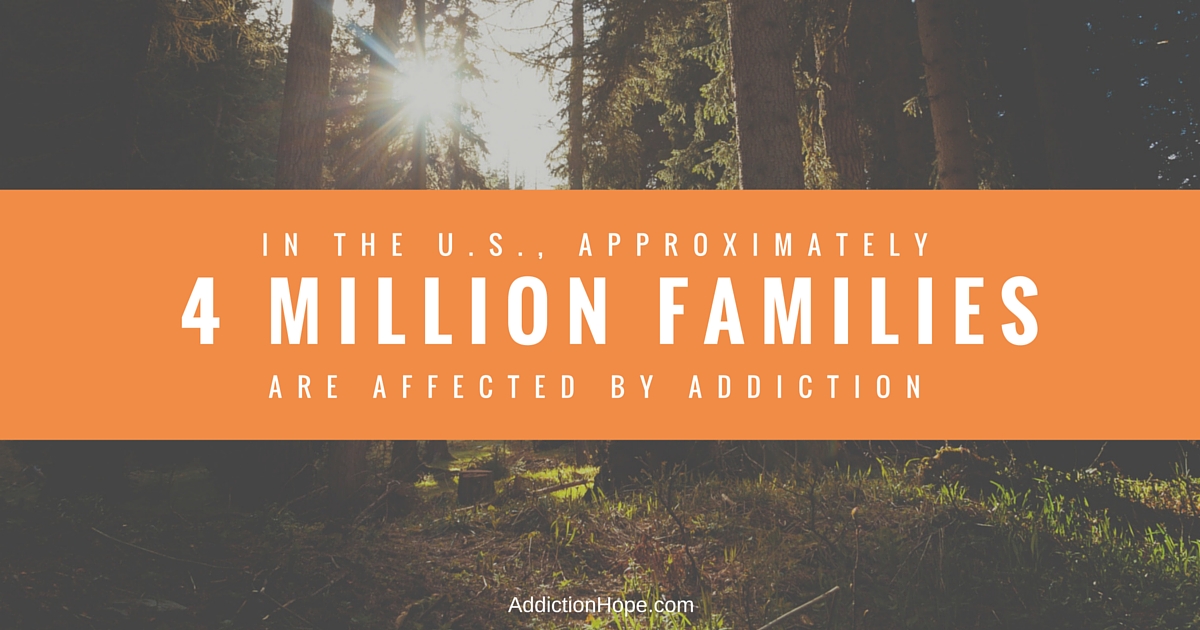
Contributed by Staff Writer for Addiction Hope and Eating Disorder Hope.
Substance use continues to be a public health epidemic internationally. In the United States, approximately 4 million families are affected by addiction [1]. In Canada during any given year, 1 in 5 Canadians experience an addiction or mental illness issue [2].
Because trends in substance use are continually changing, with no perceivable end in sight for the biological, psychological, social and economic issues created or exacerbated by substance use, there is clearly a need for addiction and mental health professionals to take a comprehensive approach when intervening.
Substance Abuse And Interacting Factors
Current literature agrees that drug abuse has a reciprocal relationship with family functioning, with research suggesting that substance use and abuse can be maintained through varied interacting factors related to social, family, and community systems – to name a few [3].
Furthermore, current studies show that, for a variety of reasons, children with parents who use substances are more likely than their peers to abuse substances or have other negative outcomes, including attachment issues [4].
In other words, the effects of substance use within families can span decades, having a multi-generational impact. Clearly, it is not enough to intervene with only the individual using substances or active in their addiction, family systems must be taken into account and planned for.
Complexity In Family Relationships
Continually shifting and evolving from a more traditional nuclear family, family systems internationally – and quite noticeably throughout North America – have gradually evolved into a more dynamic and complex system of relationships.
From step-families, same-sex/alternative families, single-parent families, foster families, adopted children, half-siblings to multi-generational families, there can clearly be many layers present within a family system.
As a result, clinicians and counseling professionals have many different factors to consider when developing a treatment plan and intervening with blended families, aka more non-traditional systems.
Working with families is challenging, but rewarding work, though the clinician must be alert to avoid triangulation and enmeshment in potentially unfavorable dynamics.
Blended Family Systems
In blended families, the dynamics become even more complicated, considering power differentials, hierarchies, separate household with different rules and the individual’s differing roles within the family and their individual narrative.
Specifically, a parent or child can become enmeshed in the substance user’s world, to the detriment of other relationships or safety within the family. One parent might take a "savior" role, focusing on the needs of the other children and becoming too focused on their comfort.
Additionally, children of a substance-using parent might become "parentified," taking on more responsibility than is age-appropriate in order to compensate for what is lacking from the parent’s care. Codependency and issues with relationships might also result [7].
Some examples of the interactions and dynamics present in substance-using families include [4,6]:
- Negative communication and interaction. For example, complaints and criticisms are frequent while the household mood is low. Here, crisis situations are given attention and positive behavior is ignored.
- Inconsistency. Erratic rule setting and inconsistent enforcement exists. Limits may be confused, which confuses children that don't have clear boundaries. A chaotic and tumultuous household may exist.
- Misplaced anger. Children or parents who resent their emotionally deprived home and are afraid to express their outrage turn to substance abuse as one way to manage their repressed anger.
- Self‐medication. Other family members might begin misusing medication to dampen feelings, or they may start using illicit substances in an effort to manage feelings – albeit unhealthily.
- Denial by parents. Ignoring glaring signs of substance use, parents' stance might be, "You are wrong. There is no problem. My child does not have a problem."
- Unrealistic parental expectations. If parental expectations are unrealistic, children might automatically seek to excuse themselves from such expectations or work obsessively to achieve them, but never meeting the high standard. In one example, a child might state, "I’m just a junkie. What do you expect?" This indicates the child’s self-esteem and confidence is affected. On the other hand, low expectations, when a child feels they will fail no matter what, tend to result in a self-fulfilling prophecy.
For clinicians, the challenge becomes addressing the risk levels present within families and how to shift some of the unhelpful dynamics into more adaptive, functional systems [4].
Treatment Options For Families Struggling With Addiction
 There are a variety of treatment options and specific intervention styles available to clinicians working with both traditional and non-traditional families. A genogram (a visual representation of one's family relationships and medical history) can be utilized to gain a stronger understanding of the households and individuals involved in the family, and the unique roles of each [7].
There are a variety of treatment options and specific intervention styles available to clinicians working with both traditional and non-traditional families. A genogram (a visual representation of one's family relationships and medical history) can be utilized to gain a stronger understanding of the households and individuals involved in the family, and the unique roles of each [7].
The genogram can be further used to examine the impact substance use has had on the current generation and past generation to create understanding of the impact that it has had on the family system.
Education can be an integral part of family work, looking at what the different relationships could be and what a change in family life could mean, utilizing motivation to elicit change [7].
Literature agrees that a variety of different modalities can prove helpful in working with non-traditional families and substance use. These include:
- Integrated approaches
- Narrative interventions
- Cognitive behavioral interventions
- Motivational interviewing strategies
- Client-centered approaches [7].
Keeping Your Focus On The Addict's Family
At this stage, the value of the therapeutic relationship should not be minimized, as the practitioner’s goal is to work towards restructuring family relationships, perspectives and maladaptive interactions that maintain or are associated with substance use.
Here, the practice of walking shoulder-to-shoulder with our families is an important first step. After all, with the development of a relationship, anything is possible.
References:
[1] Rowe, C. L. (2012). Family therapy for drug abuse: Review and updates 2003–2010. Journal of Marital and Family Therapy, 38(1), 59-81.
[2] Smetanin et al (2011). The life and economic impact of major mental illnesses in Canada: 2011-2041.
[3] Fals-Stewart, W., Lam, W., & Kelley, M. (2009). Learning sobriety together: Behavioral couples therapy for alcoholism and drug abuse. Journal of Family Therapy, 31, 115–125
[4] M. Solis, J., M. Shadur, J., R. Burns, A., & M. Hussong, A. (2012). Understanding the diverse needs of children whose parents abuse substances. Current Drug Abuse Reviews, 5(2), 135-147. doi:10.2174/1874473711205020135
[5] Canadian Centre on Substance abuse. (2009). Substance abuse in Canada: Concurrent disorders. Ottawa, ON: Canadian Centre on Substance Abuse. Retrieved from http://www.ccsa.ca/Resource%20Library/ccsa-011811-2010.pdf
[6] Reilly, D.M. Drug‐abusing families: Intrafamilial dynamics and brief triphasic treatment. In: Reilly, D. M. (1992). Drug-abusing families: Intrafamilial dynamics and brief triphasic treatment. Family Therapy of Drug and Alcohol Abuse. Boston: Allyn and Bacon.
[7] Center for Substance Abuse Treatment. Impact of Substance Abuse on Families. In: Center for Substance Abuse Treatment. (2004) Substance abuse treatment and family therapy. rockville (MD): Substance abuse and mental health services administration (US). Retrieved from: http://www.ncbi.nlm.nih.gov/books/NBK64258/
We at Addiction Hope understand that addiction results from a combination of environmental and genetic factors. If you or a loved one is suffering from addiction, please refer to our National Treatment Locator for the best in professional help in the state of your choosing.
